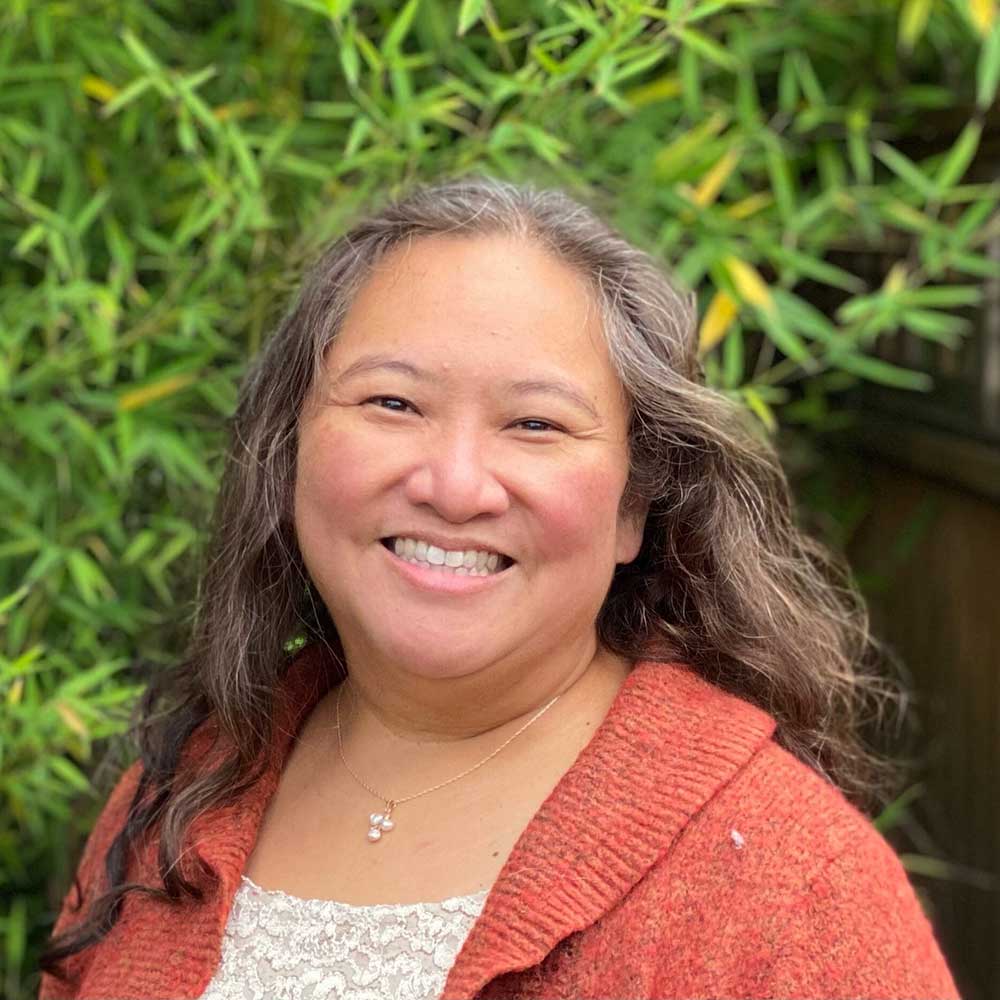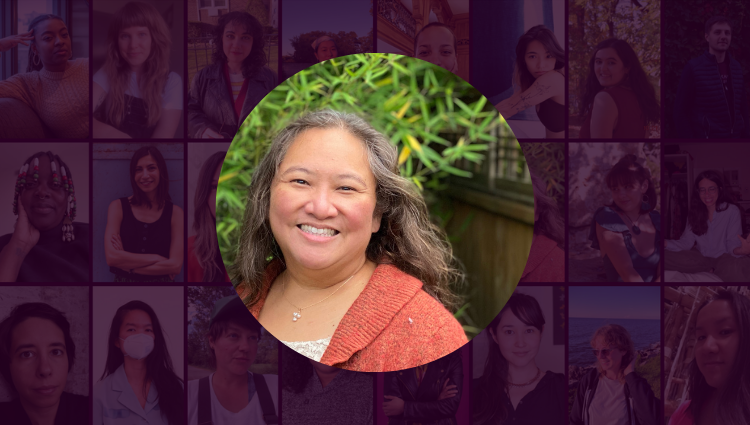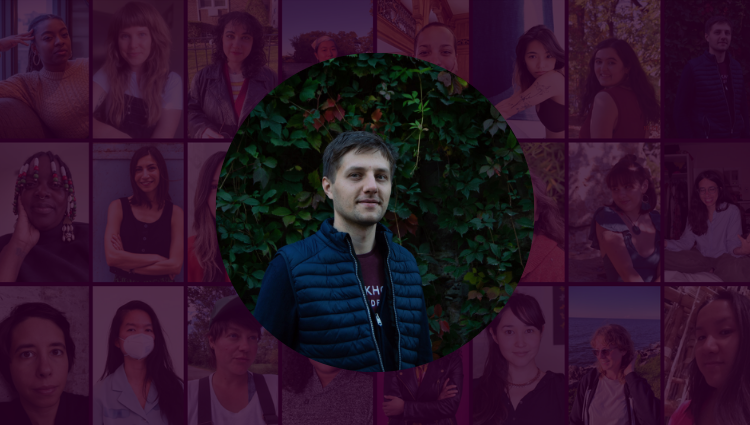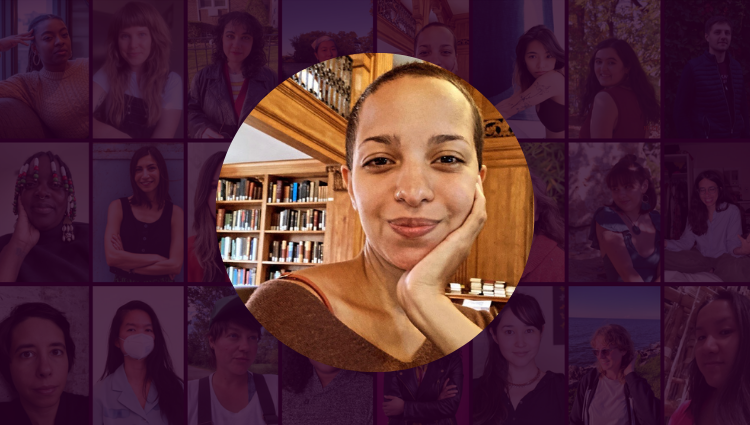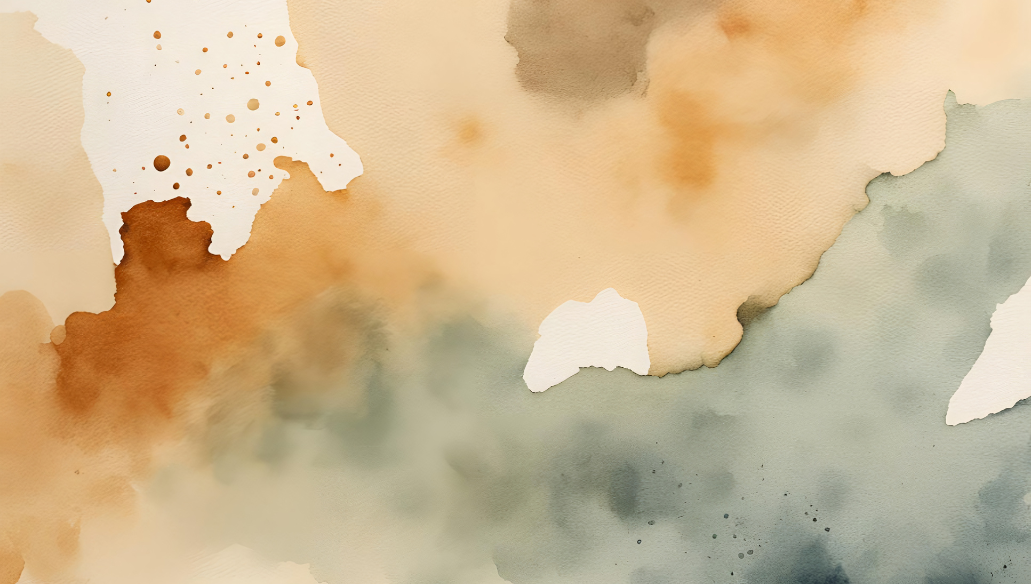To speculate beyond the world of nonfiction
A Q&A with Tamiko Nimura
Tamiko Nimura was one of our Summer 2024 Digital Residents. As a part of this program, we give our residents the option to publish an excerpt of their work, write a process piece, or have a Q&A with us. Here, Tamiko does a Q&A with Seventh Wave, giving us a glimpse into her words, work, and process. You can read more Spotlights here.
Seventh Wave: Tell us about your work or what you’re writing these days. What or who are you writing for?
Tamiko Nimura: When I applied to Seventh Wave in Spring 2024, I wrote: “I am between books, which means I am restless.” It’s now the end of summer and I am still making (traveling) my way and making (creating) my way through this time/space. I have published two books and am waiting for the third one to find a publishing home. There are a couple of book projects that I am working on next: a novel and an essay collection. Both of these are projects that are calling me, and I’m not sure where I will land first. The novel is still mostly living in my head; I’ve been set-dressing it for a while now but haven’t moved into writing scenes beyond the first couple of pages. I’m still feeling my way into writing fiction after having published nonfiction for over a decade. The essay collection feels more familiar—the essay is my home genre—but it also feels like a project that hasn’t quite coalesced yet.
I write for myself, for my partner, for my kids, my family, my friends, my teachers and students, my communities. I’m inspired by the Japanese American concept of “kodomo no tame ni,” which translates as “for the sake of the children,” but for my lived experience translates into a broad intergenerational love that flows back and forth across generations.
TSW: What is a question you’re asking yourself these days, and, what’s a question you are or your work is asking of your reader?
TN: How can I create the conditions for my writing to dream, to imagine, to speculate beyond the world of nonfiction? What kind of world-building does my writer self need for that to happen? How do we remember across structural and individual silences? How do we remember with love and imagination?
TSW: Who do you bring into the room with you when you write or who do you consider your work to be in conversation with?
TN: For a long time, over a decade, I used our kitchen nook as my home office. We finally moved things around so that I have my own office in the last year and a half or so. I don’t always write in my home office, but here are some of the people I have there. My writing inspiration bookshelf includes Lynda Barry, Toni Cade Bambara, Felicia Rose Chavez, Alexander Chee, Ross Gay, Cathy Park Hong, and Ann Patchett. My quote wall that hangs above my standing desk has excerpts from essays and interviews with Toni Cade Bambara, Alexander Chee, Lucille Clifton, Ross Gay, Toni Morrison. And there are photos of my partner and our family. I also have a framed picture of my sister dancing at her wedding with our mom and three of our aunties.
TSW: What’s a writing routine ritual, or manta that keeps you beginning these days?
TN: “In a time of destruction, create something.” I am always comforted by this sentence of Maxine Hong Kingston’s in her novel The Fifth Book of Peace. I really started thinking of it in the aftermath of the 2016 election. The full quote is worth revisiting too, from time to time: “In a time of destruction, create something. A poem. A parade. A community. A school. A vow. A moral principle. One peaceful moment.”
TSW: What’s a change you are excited about or would like to see in the literary or publishing world?
TN: I’ve been really excited to see the ways that BIPOC folks are working to stretch the genre of memoir. Shannon Gibney’s speculative YA adoptee memoir, The Girl I Am, Was, And Will Never Be. Jami Nakamura Lin’s speculative memoir The Night Parade, which incorporates Japanese folktales. Jackson Bliss’s choose-your-own-adventure memoir, Dream Pop Origami. Faith Adiele’s hybrid chapbook memoirs Her Voice and Voice/Over that involve elements of screenwriting and collage. And Vanessa Villareal’s hybrid memoir/cultural criticism, Magical Realism. All of these books are experimental, but purposefully so: experimentation not just for the same of experimenting and not at the expense of clarity or legibility.
I’d like to see more intentional creation of writing communities like Seventh Wave. And I’d like to see more financially accessible means to classes and broader paths for publication to everyone. I’ve been so grateful for the writing resources I’ve been able to access (workshops, conferences, editing services and so on) but they can be so expensive, and not so available for everyone.
